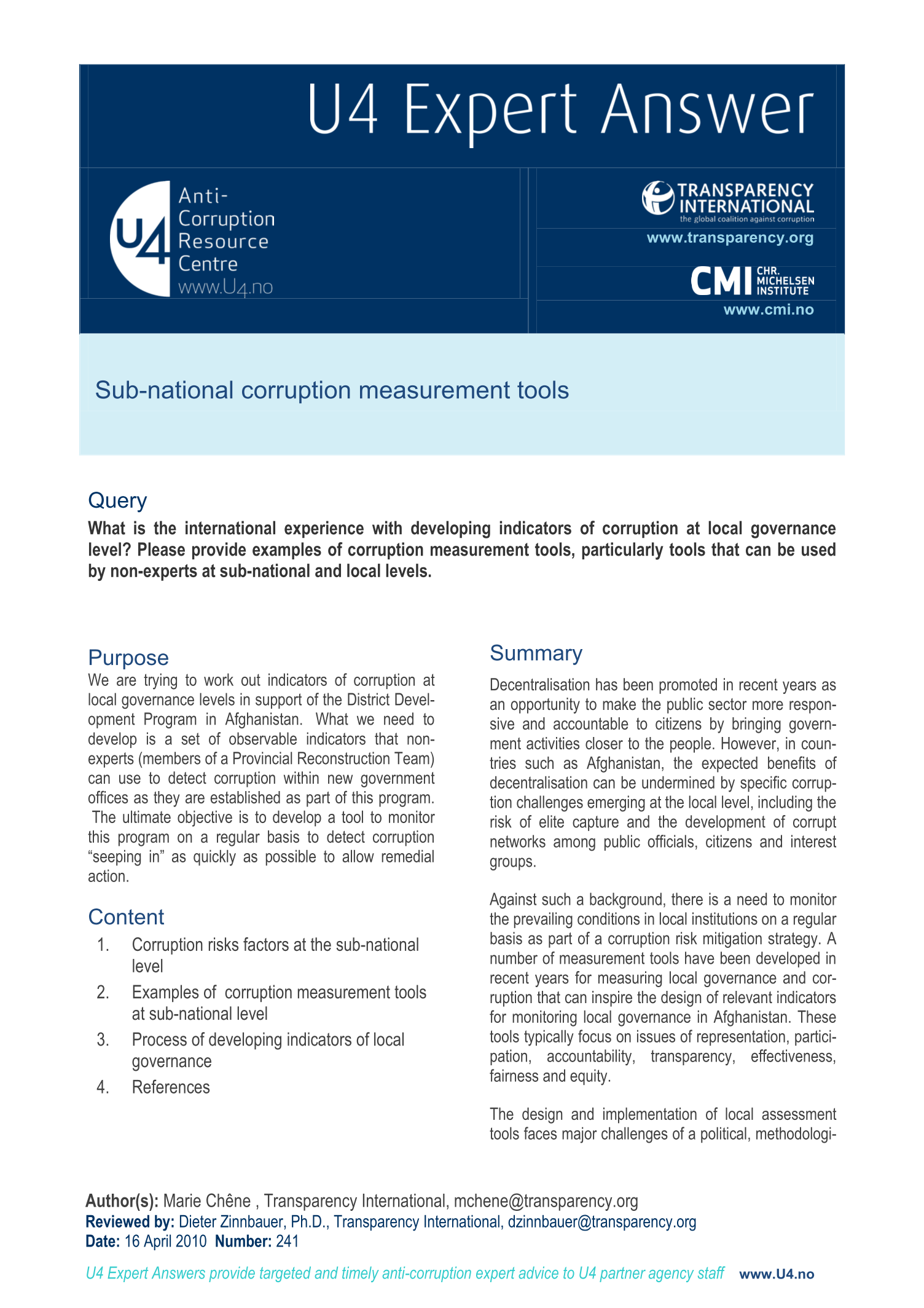U4 Helpdesk Answer
Sub-national corruption measurement tools
Decentralisation has been promoted in recent years as an opportunity to make the public sector more responsive and accountable to citizens by bringing government activities closer to the people. However, in countries such as Afghanistan, the expected benefits of decentralisation can be undermined by specific corruption challenges emerging at the local level, including the risk of elite capture and the development of corrupt networks among public officials, citizens and interest groups. Against such a background, there is a need to monitor the prevailing conditions in local institutions on a regular basis as part of a corruption risk mitigation strategy. A number of measurement tools have been developed in recent years for measuring local governance and corruption that can inspire the design of relevant indicators for monitoring local governance in Afghanistan.

Cite this publication
Chêne, M. 2010. Sub-national corruption measurement tools. Bergen: U4 Anti-Corruption Resource Centre, Chr. Michelsen Institute (U4 Helpdesk Answer null)
Disclaimer
All views in this text are the author(s)’, and may differ from the U4 partner agencies’ policies.
This work is licenced under a Creative Commons Attribution-NonCommercial-NoDerivatives 4.0 International licence (CC BY-NC-ND 4.0)

